|
EUROMARINE
FOUNDATION -
HOME - A-Z INDEX

EUROMARINE
- Organises yearly calls for proposals to advance marine science or services through activities or programmes of the latter.
According
to their website EuroMarine is a European marine science network
that was launched in 2014. The organization represents the merger of the scientific communities of three former European Networks of Excellence:
* EUR-OCEANS
* Marine Genomics Europe
* MarBEF.
The merger was designed by the EuroMarine preparatory project (2011-13; funded under the seventh European Framework Programme) as a bottom-up organization and meant to be a voice for the European marine scientific community. It is intended as a durable structure and was established as a consortium for an initial duration of 10 years.
A Legal Entity
was to be established in 2016 as a support structure under the control of the Consortium. EuroMarine initially counted 66 (founding, 2014) member organisations (MOs), 55 of which were 'full voting' members contributing to the 2014 budget.
The primary goals of EuroMarine are to support the identification and initial development of important emerging scientific topics or issues and associated methodologies in marine sciences, as well as to foster new services relevant to the marine scientific community.
EuroMarine will achieve these goals through internal competitive calls for proposals, funded from the EuroMarine budget. It is expected that support for these activities and their outcomes will help to leverage larger projects under European, national or joint research funding programmes.
EuroMarine also intends to advocate for marine science and to contribute improving the science-governance interface, providing expertise and transferring knowledge.
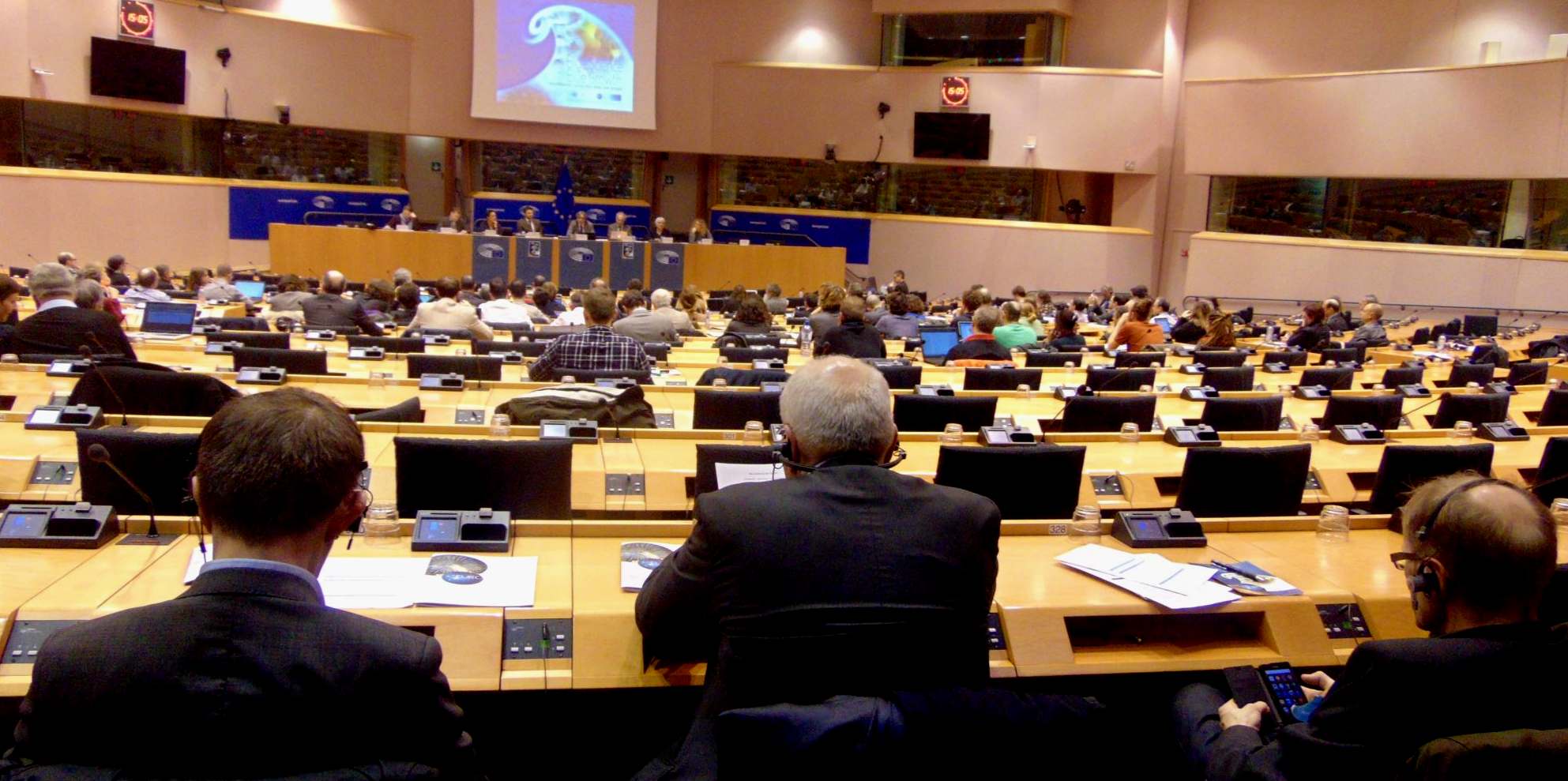
BLUE
SCIENCE FOR BLUE
GROWTH
Type: Other
Start Date: February 8, 2017
End Date: February 8, 2017
Venue: EU Parliament, Brussels (Belgium)
Contact: EuroMarine Secretariat
E-mail: secretariat@euromarinenetwork.eu
Over 120 stakeholders, comprising of marine scientists, industry members, policymakers, and students, convened at the European Parliament on 8 February 2017 to contribute to the EuroMarine event “Blue Science for
Blue Growth, EuroMarine: connecting ideas and people”. EuroMarine, a marine science network with 73 member institutions from 23 countries, intended to create a forum on the importance of marine science, and how its members are collaborating to advance marine science with innovative and responsive ideas.
MEP Ricardo Serrão Santos opened the session with a rousing call to action, “The balance between encouraging economic growth in the ocean and nurturing the health of ocean ecosystems will be a complex mission. Without good science, blue growth can turn on wrong pathways."
A short introductory film followed on the significance of the ocean in our lives and how EuroMarine works to enhance our knowledge on the marine world, both to increase our capacity to use the oceans wisely, and to contribute to its protection.
EuroMarine Chairs Catherine Boyen (Centre national de la recherche scientifique, CNRS) and Philippe Cury (L'Institut de recherche pour le développement, IRD) introduced the network and its role in assisting scientists to collaborate, innovate and advocate for marine science. Its successes can be seen through the remarkable work of over 800 scientists who participated in over 37 EuroMarine supported events in the last two years alone.
Four EuroMarine activities were presented, highlighting the potential to achieve big results with incentive funding. The talks covered the wide marine spectrum, from pathogens to chemical ecology of marine interactions, marine trophodynamic models and even ecosystem based solutions for resilient urban harbours. These showcased the EuroMarine vision, its achievements and perspectives, while simultaneously presenting an engaging narrative on marine issues.
In the discussion that followed on innovation for global challenges and the role of marine science, moderator Jean-Marc Châtaigner (IRD Managing Director) emphasised the value of interactions and interdisciplinarity to face
global challenges, and the need to progress toward a forum which empowers scientific communities worldwide.
As co-moderator of the discussion on the added value of EuroMarine to the European marine landscape, MEP José Inácio Faria noted the need for concerted collective action to secure the valuable resources of the Oceans. The Executive Secretary of the European Marine Board, Niall McDonough, as well as Kathrine Angell-Hansen, JPI Oceans Director, and Iliaria Nardello, EMBRC Executive Director, each presented their visions of how these different initiatives can work together to complement each other in the complex European Marine landscape, stressing the need for the different approaches but also unified action. Sigi Gruber, Head of marine unit, DG research, provided some positive insights into how EuroMarine, as a group of core researchers, can provide responsive science to topical issues and meet the needs for capacity building in marine sciences.
Proving to be a resounding success, the event turned out to be a thought-provoking and illuminating dialogue on our oceans, and introduced the work and aims of EuroMarine to a wider audience.
Reporting on the success of the meeting, Catherine Boyen said, “EuroMarine is a unique initiative bringing together the best European expertise in marine sciences. We now have to capitalize on these promising achievements, to make more progress for the future of our blue planet.”
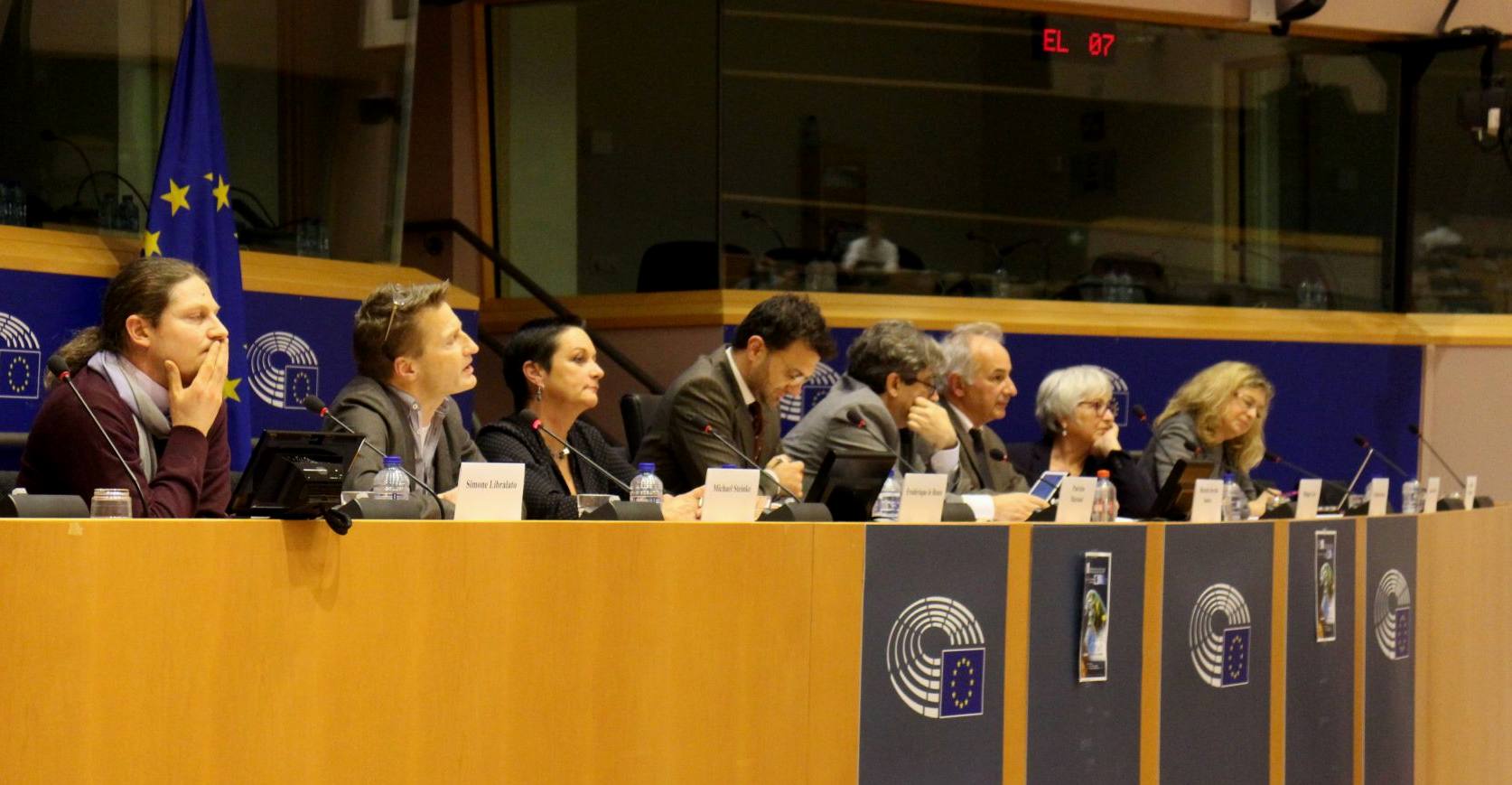
BSBG
STRATEGY - On 8 February 2017, EuroMarine held an event "Blue Science for Blue Growth: EuroMarine, connecting ideas and people" at the European Parliament. Over 120 stakeholders, comprising of marine scientists, industry members, policymakers, and students, convened to discuss the oceans, the work of EuroMarine and its role in the larger European marine landscape.
BLUE
GROWTH SCIENTIFIC STRATEGY
The preparatory project has identified three grand scientific 'challenges' - to be broadly construed - for the EuroMarine network:
Understanding marine ecosystems for healthy oceans under global / climate change [basic science]
Building scenarios for marine socio-ecological systems under changing oceans [governance]
Marine science as a provider of new concepts for innovation and technology [novel ideas and innovation]
It has also identified six initial 'emerging fields' that require interactions among the three former NoE communities that EuroMarine merges:
1. Intra- and inter-generational evolution and forecasting of living marine resources
2. Complex interactions including tipping points, regime shifts and shifting assemblages in marine ecosystems
3. Effects of global warming, ocean
acidification, sea level rise and hypoxia on biodiversity and ecosystem function
4. Marine rhythms of life and their alterations
5. Valuation of goods and services delivered by marine ecosystems
6. Restoration and conservation of sustainable marine ecosystems.
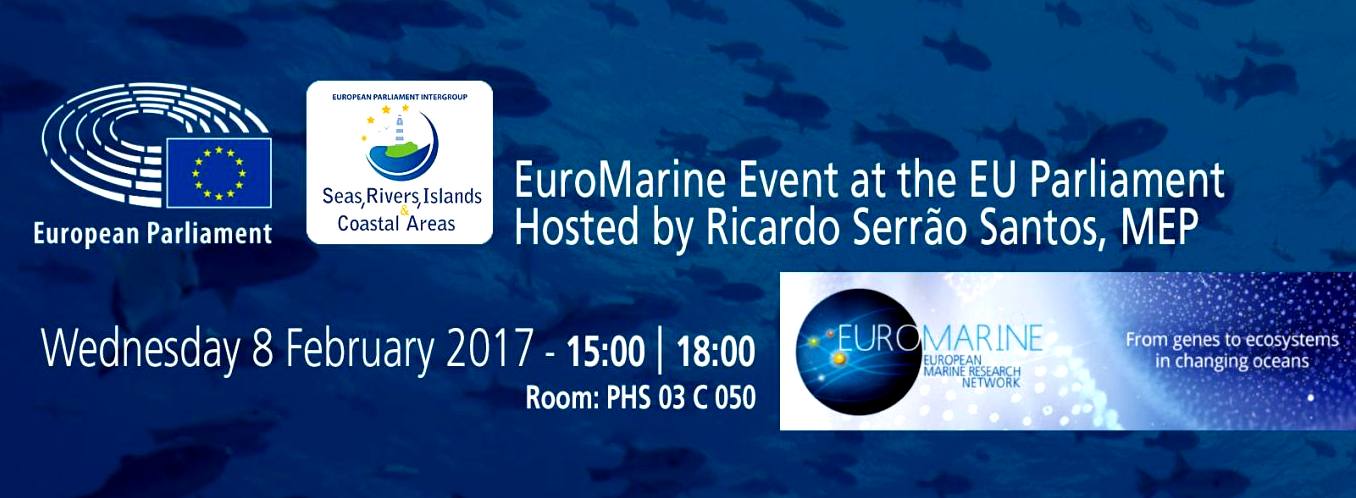
Lastly, it has recommended that EuroMarine initially focus on transdisciplinary approaches and such emerging fields in order to foster integration and benefit from joint approaches.
The EuroMarine Network has additionally adopted a few 'hot topics' when launching its first yearly call for proposals:
* Rapid changes in polar oceans
* High resolution oceanography and productivity
* Convergent approaches between biogeochemistry and genomics to better understand
& model biogeochemical cycles.
In line with its bottom-up ethos and in order to favour the emergence of new ideas and approaches, the EuroMarine Network has also recognized that its yearly calls should in general be widely open in terms of topics (provided that such topics do not duplicate existing initiatives and that single organisations could not tackle them alone).
Consequently, the transdisciplinarity criteria and the above lists of emerging fields and hot topics are in no way exclusive. EuroMarine will support other ‘hot topics’ that require transdisciplinary approaches, as well as topics or issues that are key for the progress of specific disciplines.
EUROMARINE
ON YOUTUBE

EUROMARINE
CONTACTS & REFERENCE
Scientific
coordination
Secretariat
Barbara
Raffenne (CNRS)
Assistant (part-time)
barbara.raffenne@sb-roscoff.fr
Tel: +33 (0) 2 98 29 23 28
Fax: 33 (0)2 98 29 23 24
Roscoff
(CNRS) antenna
Station Biologique CNRS-UPMC
Place Georges Teissier CS 90074
29688 Roscoff cedex - France
Communications
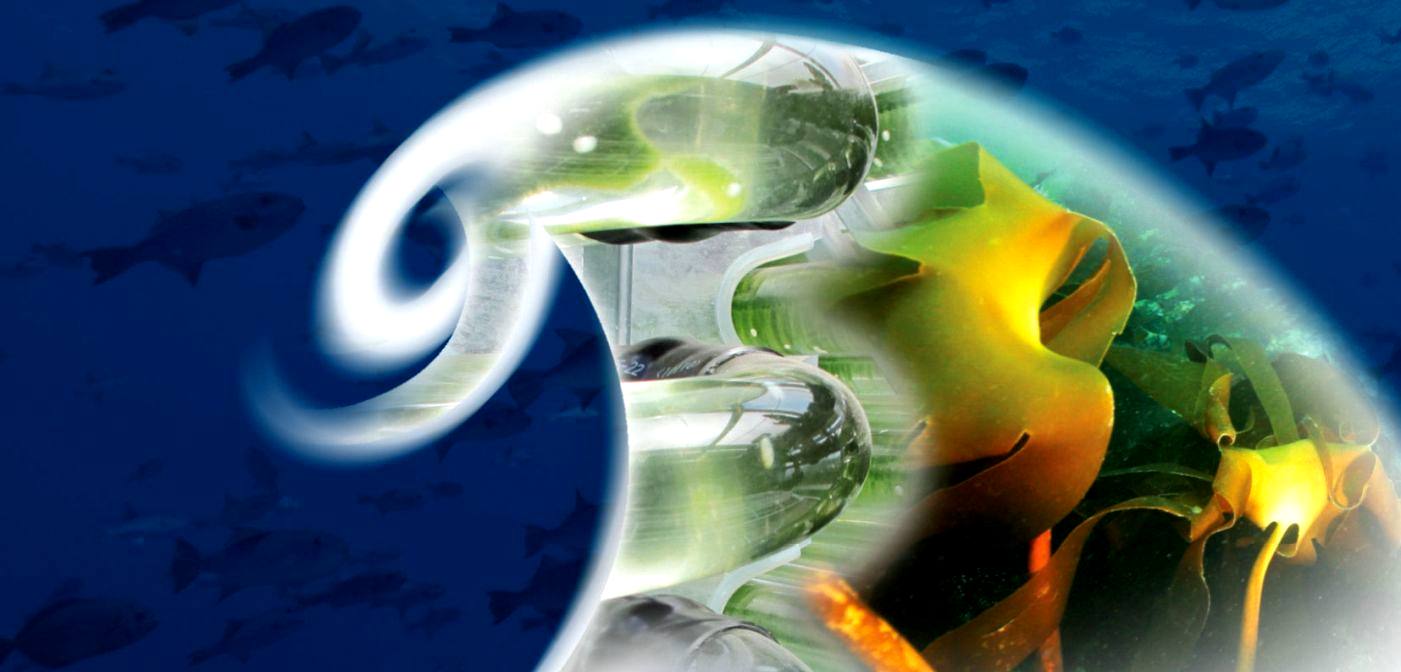
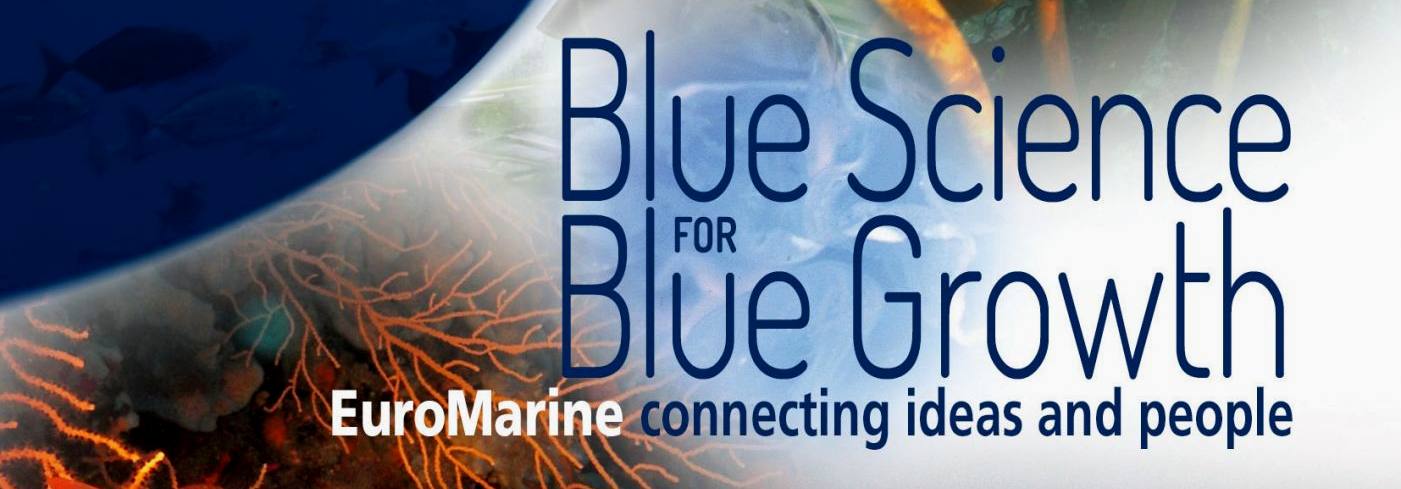
http://www.euromarinenetwork.eu/BSBG
http://www.bluegrowth.gr/register/
http://ec.europa.eu/dgs/environment/index_en.htm
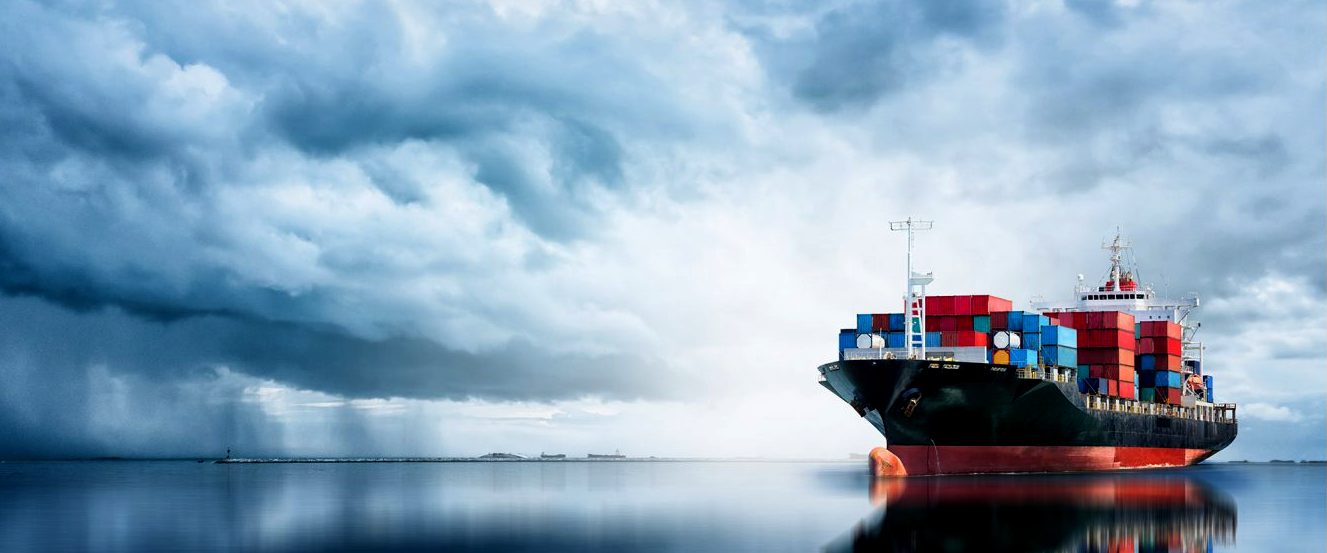
This
website is provided on a free basis as a public information
service. Copyright © Cleaner
Oceans Foundation Ltd (COFL) (Company No: 4674774)
2017. Solar
Studios, BN271RF, United Kingdom.
COFL
is a charity without share capital.
|




